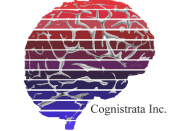A Historic Perspective

AD is a degenerative disorder of the brain associated with the progressive decline of memory and cognitive functions. The disease is characterized by the loss of neurons and synapses in the cerebral cortex and other regions of the brain. However, the cause of AD is not well understood. The disease is associated with the formation of two abnormal structures in the brain – beta-amyloid plaques and neurofibrillary tangles of a protein called tau and concurrent reduction in the activity of cholinergic neurons. Massive scientific effort has been focused on investigating the formation of the amyloid plaques and neurofibrillary tangles and on understanding their role in AD pathology. So far, this effort has not materialized into a cure for AD, perhaps because neuronal loss is innately difficult to reverse. By contrast, our strategy will focus on the early stage of the disease, when the normal signal propagation through the brain networks can be stabilized and maintained in order to prevent and delay neuronal death.
Two types of medications are currently used to treat the cognitive decline in AD – acetylcholine (ACh) esterase inhibitors and a NMDA glutamate receptor antagonist, memantine. The role of acetylcholine esterase inhibitors is to increase the concentration of the neurotransmitter ACh, thus opposing the loss of ACh in the brain associated with AD. The benefit of these types of medications is small. However, both types of medications affect the brain network which we discovered, pointing to a different strategy in combating the disease that emphasizes the importance of normal information processing for brain health.
Unlike AD, Parkinson's disease is characterized by loss of dopaminergic neurons in the substantia nigra region of the brain and by the accumulation of a protein called alpha-synuclein in intracellular structures named Lewy bodies, found throughout the Parkinsonian brain. The motor symptoms of PD are a direct consequence of the neuronal loss in substantia nigra and the ensuing dopamine (DA) depletion in the striatum. Early in the course of PD, pharmacological treatment with levodopa (a precursor of DA) and DA agonists effectively controls the motor symptoms of the disease. However, as PD progresses, these drugs become less effective at managing the symptoms, while triggering serious side effects known as dyskinesias (involuntary movements). In addition, PD can cause non-motor symptoms which include disorders of speech, memory, cognition, mood, behavior and thought. Cognitive disorders can occur early in the course of PD and increase in prevalence with the disease’s progression. The cognitive decline in PD, like in AD, is treated with acetylcholine esterase inhibitors.
Altogether, AD and PD have different etiologies; nevertheless, they affect the same cognitive functions, suggesting that information processing necessary for these functions depends on a common network of signaling molecules.
Two types of medications are currently used to treat the cognitive decline in AD – acetylcholine (ACh) esterase inhibitors and a NMDA glutamate receptor antagonist, memantine. The role of acetylcholine esterase inhibitors is to increase the concentration of the neurotransmitter ACh, thus opposing the loss of ACh in the brain associated with AD. The benefit of these types of medications is small. However, both types of medications affect the brain network which we discovered, pointing to a different strategy in combating the disease that emphasizes the importance of normal information processing for brain health.
Unlike AD, Parkinson's disease is characterized by loss of dopaminergic neurons in the substantia nigra region of the brain and by the accumulation of a protein called alpha-synuclein in intracellular structures named Lewy bodies, found throughout the Parkinsonian brain. The motor symptoms of PD are a direct consequence of the neuronal loss in substantia nigra and the ensuing dopamine (DA) depletion in the striatum. Early in the course of PD, pharmacological treatment with levodopa (a precursor of DA) and DA agonists effectively controls the motor symptoms of the disease. However, as PD progresses, these drugs become less effective at managing the symptoms, while triggering serious side effects known as dyskinesias (involuntary movements). In addition, PD can cause non-motor symptoms which include disorders of speech, memory, cognition, mood, behavior and thought. Cognitive disorders can occur early in the course of PD and increase in prevalence with the disease’s progression. The cognitive decline in PD, like in AD, is treated with acetylcholine esterase inhibitors.
Altogether, AD and PD have different etiologies; nevertheless, they affect the same cognitive functions, suggesting that information processing necessary for these functions depends on a common network of signaling molecules.

